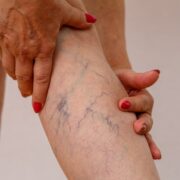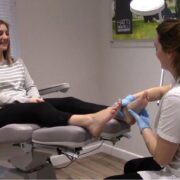The incidence and impact of malnutrition among the older people in our societies is often underestimated mainly due to insufficient understanding of the nutrition needs among the senior citizens. Malnutrition in this case refers to under-nutrition, or when the body has deficiencies of specific nutrients from the food taken to properly function. It is both a cause and a consequence of poor health among the elderly.
In this case, early intervention and Prevention is critical because it is challenging to reverse the effects of malnutrition among the elderly people. Prevention and early intervention starts by first establishing the root causes of poor food intake.
Causes of poor food intake
The anorexia of ageing is associated with significant inconsistencies with food intake regulation in the body. Thus, the elderly tends to have less appetite, have fewer snacks between meals, eat smaller meals, and eat more slowly consequently decreasing the nutrient intake in the body. Other factors that many cause poor intake include:
• Decreased sense of taste and smell: Making the food unappealing to eat.
• Prevalence of diseases that lead the prescription of overly restrictive diets may be difficult to follow or are unpalatable.
• Changes in functional status that may limit ability to perform normal daily activities such as shopping and cooking which can impact their dietary intake
• Psychosocial changes such as loneliness, depression, loss of spouse among others, resulting to loss of appetite.
• Financial contains may limit one to access to adequate nutrition.
• Medical conditions including the chronic conditions.
How to increase intake among the elderly
The above list of causes of poor food intake among the elderly is not exhaustive; however, it offers us a glimpse of the root causes of the problem, thus giving us the ability to fix it. The following strategies recommended by Dolman Law Group will enable the elderly overcome the majority, if not all their malnutrition problems.
Take a “Food First” approach: This strategy focuses on making the calories count, especially since loss of appetite is a common problem among the elderly. It is imperative to ensure that they are filled up on foods and drinks that have high nutritional value. Encourage them to eat more frequently, small portions of proteins and high energy foods. Taking of tea, coffee, or other beverages that do not have high nutrition value creates a feeling of fullness thus resulting to further loss of appetite.
Add more flavorful: With the diminishing senses of smell and taste, spicing up the food can make the food more palatable and consequently increase the appetite.
Use healthy supplements: when adequate calorie intake becomes a problem due to maybe chewing problems, consider oral nutritional supplements such as the nutrient rich pre-made shakes. It is important to note that they are not a replacement for the actual food, but only top-up the nutrient value and should only be consumed between meals.
Opt for small, frequent meals: Seniors should take up to 6 small meals per day, instead of the three traditional large meals. Smaller potions seem more palatable and less overwhelming.
Natural foods: Encourage them to consume a variety of natural foods with a variety of vibrant colors, such as fruits and vegetables. This will not only stimulate their appetite due to multiple flavors and colors, but will also provide them with adequate nutrient.
Seek help: When finances are a problem, it is important to seek assistance from both the government based and NGO based institutions and programs that provide support to the elderly.
















Comments